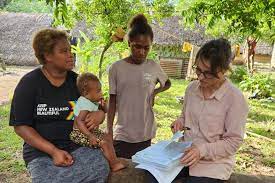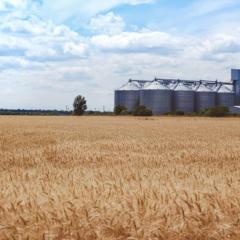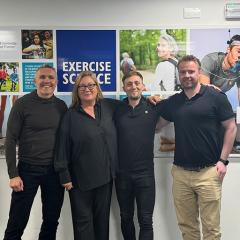ABC News article by Melissa Maykin and Dubravka Voloder posted 30 November 2023
On Tanna, a volcanic island in southern Vanuatu, children with physical disabilities like 11-year-old Jereth Lava have lived in obscurity.

Dr Andrea Burgess will travel to Tanna next month to complete the cerebral palsy register. (Supplied: Dr Mahmudul Al Imam)
Jereth has always loved learning and spoke both French and Bislama, the national language of Vanuatu.
But in 2021, the then nine-year-old’s life changed forever when he was hospitalised with high fevers.
Doctors struggled to identify the infection, which was left untreated and developed into meningitis, an inflammation of the tissues around the brain and spinal cord.
His father Robert felt helpless as his son's condition deteriorated until he eventually needed around-the-clock care.
"It was very challenging for Jereth because [the hospital] had difficulty finding what was making him sick," he said.
With healthcare systems constrained by a lack of funding and specialists, parents like Robert are taking care of their children as best they can.
It's unclear just how many ni-Vanuatu children live with a disability like cerebral palsy, which is caused by damage to the developing brain and affects movement, posture and balance.
Studies have found that cerebral palsy — the most prevalent childhood physical disability — occurs in about 3.7 of every 1,000 children in low- and middle-income countries. With a population of 32,500, researchers estimate about 53 children would be living with the condition on Tanna.
However, a new register developed in Vanuatu by Australian heath experts has sparked hopes for patients and their families.
A register to 'bring in new ideas'
The register aims to record the number of children on Tanna who live with cerebral palsy, their level of impairment and causes of the condition as well as intervention and services available.
The project is headed by [University of] Queensland occupational therapist Dr Andrea Burgess, who is leading a team of researchers, doctors and health workers from the local Lenakel Hospital and volunteer-run Tafea Health Care Association. It's expected to be completed by next month.
Dr Burgess said her mentor, paediatrician Dr Gulam Khandaker, had encouraged her to work on Tanna as a "really good way to advocate to help people".
"Mortality for children [with cerebral palsy] in low-income countries is up to 25 times higher than other children in their community because of problems such as feeding and swallowing difficulties," Dr Burgess said.



